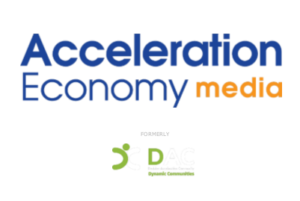In an era where businesses are navigating a dynamic landscape of economic challenges, growth opportunities, and evolving regulatory requirements, harnessing the power of automation has become a strategic imperative. If you’re a user of a Dynamics 365 ERP, you’re already well-versed in leveraging digital tools to enhance efficiency. Yet, the true potential lies in automating resource-intensive processes, particularly those related to tax and regulatory compliance.
Manual processes and outdated technology risk being non-compliant. Automation is critical in adapting to changing rules and ensuring steadfast compliance. Its paramount role becomes evident during audits, shielding businesses from fines and penalties. This guidebook will highlight why embracing automation is pivotal for businesses eyeing growth, market expansion, and operational finesse in a dynamic regulatory ecosystem.
As a user of a Dynamics 365 ERP and financial automation expert, Crystal Ahrens understands the benefits of financial automation as a means of improving compliance and simplifying financial processes.
In her article “How Automation with Dynamics 365 ERP Improves Efficiency for Audits, Taxes, and Compliance,” she notes that “the automation process provides a streamlined approach to audits, taxes, compliance, and financial operations, giving finance teams more time to focus on critical areas of analysis and decision-making and increasing their value to the business.”
Similarly, Kerry Hataley, a software developer and technologist, dives deeply into the power of communication as a means of streamlining financial automation processes. In his article “How Developers Can Streamline Custom Financial Automation Processes with Clearly Defined Communication,” Kerry notes that “the most important thing you can do when looking into any automation or any project is to fully understand the project scope, limitations, restrictions, risks, and priorities. This means effectively communicating with the CFO and CIO to define the outcomes and deliver a resilient, compliant solution.”
Financial automation and regulatory compliance are no longer on the horizon but have become central to modern business practices. As such, it is critical to have the right partners, with the right tools, alongside you. Fortunately, Avalara, a leader in tax compliance, offers a suite of automated solutions that can be integrated into your Dynamics 365 ERP, or any other system you use.
This guidebook is your roadmap to understanding how financial automation can not only drive efficiency but also ensure compliance in a rapidly changing world. Specifically, you can expect this guidebook to address ideas such as:
- How integrated automation tools for Dynamics 365 enable business growth
- Why automating Dynamics 365 ERPs improves the efficiency of audits and compliance
- How communication streamlines financial automation processes
- How CIOs and CFOs can work together to generate value from technology investments


